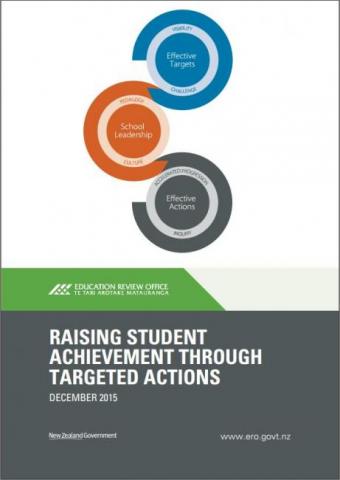Science in Years 5 to 8: Capable and Competent Teaching
Published: 01 May 2010
This Education Review Office report provides examples of good practice in science teaching for Years 5 to 8, in 13 New Zealand state schools. The evaluation included intermediate schools, contributing schools, full primary schools and a Years 7 to 15 secondary school.
- Audience:
- Parents
- Schools
- Content type:
- Research
- Topics:
- Science
- Literacy and numeracy
- Literacy











